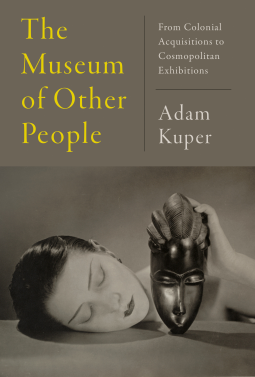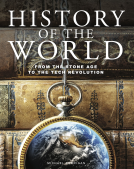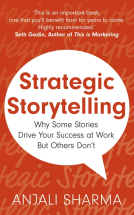
The Museum of Other People
From Colonial Acquisitions to Cosmopolitan Exhibitions
by Adam Kuper
This title was previously available on NetGalley and is now archived.
Buy on Amazon
Buy on BN.com
Buy on Bookshop.org
*This page contains affiliate links, so we may earn a small commission when you make a purchase through links on our site at no additional cost to you.
Send NetGalley books directly to your Kindle or Kindle app
1
To read on a Kindle or Kindle app, please add kindle@netgalley.com as an approved email address to receive files in your Amazon account. Click here for step-by-step instructions.
2
Also find your Kindle email address within your Amazon account, and enter it here.
Pub Date Apr 16 2024 | Archive Date May 16 2024
Talking about this book? Use #TheMuseumofOtherPeople #NetGalley. More hashtag tips!
Description
A MOST ANTICIPATED BOOK • From one of the world’s most distinguished anthropologists, an important and timely work of cultural history that looks at the origins and much debated future of anthropology museums
“A provocative look at questions of ethnography, ownership and restitution . . . the argument [Kuper] makes in The Museum of Other People is important precisely because just about no one else is making it. He asks the questions that others are too shy to pose. . . . Required reading.” –Financial Times (UK)
In this deeply researched, immersive history, Adam Kuper tells the story of how foreign and prehistoric peoples and cultures were represented in Western museums of anthropology. Originally created as colonial enterprises, their halls were populated by displays of plundered art, artifacts, dioramas, bones, and relics. Kuper reveals the politics and struggles of trying to build these museums in Germany, France, and England in the mid-19th century, and the dramatic encounters between the very colorful and eccentric collectors, curators, political figures, and high members of the church who founded them. He also details the creation of contemporary museums and exhibitions, including the Smithsonian, the Harvard’s Peabody Museum of American Archaeology and Ethnology, and the famous 1893 World’s Columbian Exposition in Chicago which was inspired by the Paris World Fair of 1889.
Despite the widespread popularity and cultural importance of these institutions, there also lies a murky legacy of imperialism, colonialism, and scientific racism in their creation. Kuper tackles difficult questions of repatriation and justice, and how best to ensure that the future of these museums is an ethical, appreciative one that promotes learning and cultural exchange.
A stunning, unique, accessible work based on a lifetime of research, The Museum of Other People reckons with the painfully fraught history of museums of natural history, and how curators, anthropologists, and museumgoers alike can move forward alongside these time-honored institutions.
“A provocative look at questions of ethnography, ownership and restitution . . . the argument [Kuper] makes in The Museum of Other People is important precisely because just about no one else is making it. He asks the questions that others are too shy to pose. . . . Required reading.” –Financial Times (UK)
In this deeply researched, immersive history, Adam Kuper tells the story of how foreign and prehistoric peoples and cultures were represented in Western museums of anthropology. Originally created as colonial enterprises, their halls were populated by displays of plundered art, artifacts, dioramas, bones, and relics. Kuper reveals the politics and struggles of trying to build these museums in Germany, France, and England in the mid-19th century, and the dramatic encounters between the very colorful and eccentric collectors, curators, political figures, and high members of the church who founded them. He also details the creation of contemporary museums and exhibitions, including the Smithsonian, the Harvard’s Peabody Museum of American Archaeology and Ethnology, and the famous 1893 World’s Columbian Exposition in Chicago which was inspired by the Paris World Fair of 1889.
Despite the widespread popularity and cultural importance of these institutions, there also lies a murky legacy of imperialism, colonialism, and scientific racism in their creation. Kuper tackles difficult questions of repatriation and justice, and how best to ensure that the future of these museums is an ethical, appreciative one that promotes learning and cultural exchange.
A stunning, unique, accessible work based on a lifetime of research, The Museum of Other People reckons with the painfully fraught history of museums of natural history, and how curators, anthropologists, and museumgoers alike can move forward alongside these time-honored institutions.
Available Editions
| EDITION | Other Format |
| ISBN | 9780593700679 |
| PRICE | $35.00 (USD) |
| PAGES | 432 |
Available on NetGalley
NetGalley Shelf App (PDF)
Send to Kindle (PDF)
Download (PDF)


















